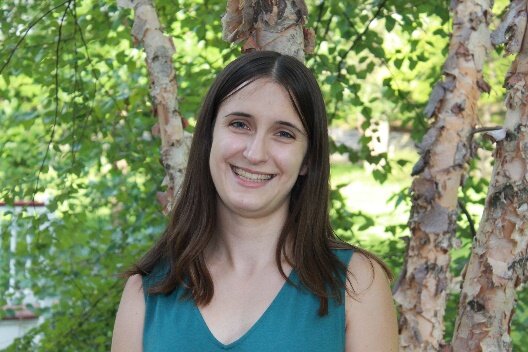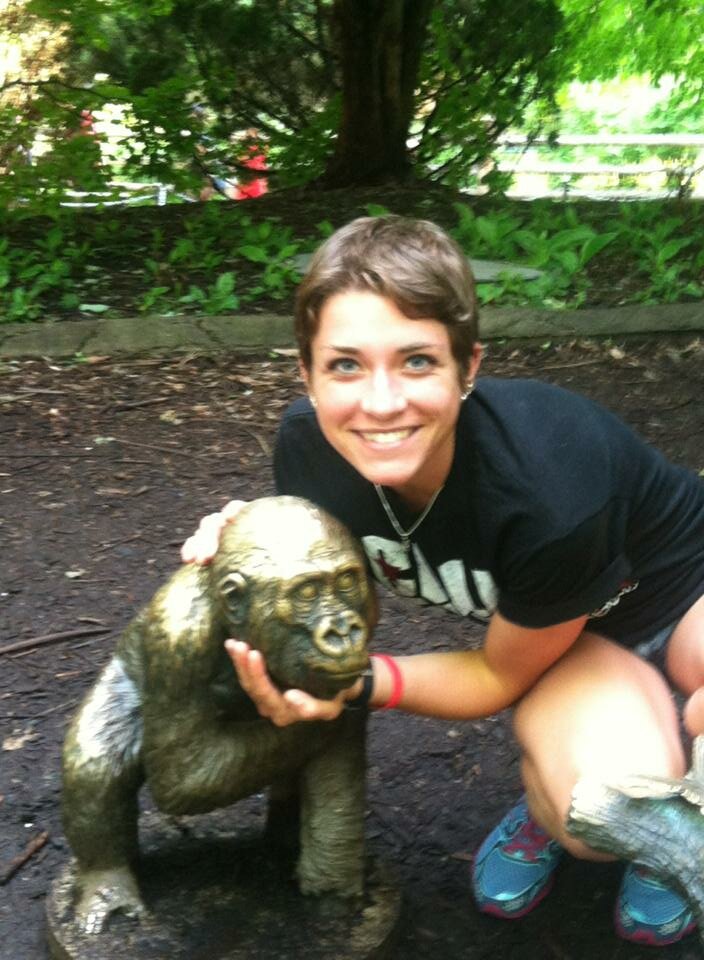A Sanctioned Babel: On fleshing out text, a visit with Cecil Taylor, and a re-wilding of language.
“The pleasure of the text is the moment when my body pursues its own ideas—for my body does not have the same ideas I do.” —Roland Barthes, from The Pleasure of the Text
…
Literary rabbit holes, as all religious readers know, are real. When we read a book, we do not only activate our eyes, we use our entire bodies. But it is not just the tactile experience of touching paper or buckram, parchment or vellum, that does this, not this, although the weight and feel of a book is much more than just a sensory perk. In an article in Scientific American last year, Ferris Jabr discussed some of the research that has been going on regarding screen-reading versus reading on paper. The brain reads letters as physical objects that live in landscapes of text—reading is the way we navigate those landscapes. So then, because “books have more obvious topography,” which we don’t have to scroll around in, there is less strain on our brains when reading on paper. Despite attempts by various e-readers to make text easier to read, “the screen only displays a single virtual page at a time: it is there and then it is gone (Jabr, 3).” Jabr tries to conceptualize this for us by asking us to imagine: “Instead of hiking the trail yourself, the trees, rocks and moss move past you in flashes with no trace of what came before and no way to see what lies ahead (Jabr, 3).” So not only does a book enhance the already physical experience of reading, it keeps us orientated in an actual space. The space of the story is what we walk around in. This summer I read Moby Dick (Moby Dick!) for the first time. I became Ishmael on the Pequod in a world of salt and could feel the rough motion of the sea and a warm swell of friendship for the beatific Queequeg. Rabbit holes are real.
Reading creates an immersion experience not only because we encounter words as physical objects, but because our brains process the meaning of words actively. How much of the body is actually involved in understanding language? Budding California neuroscientist, Benjamin K. Bergen digs into this question in his recent book, Louder Than Words: The New Science of How the Mind Makes Meaning. One of the main things that his research underlines is that: “…when you read nouns even merely to decide whether they’re words or not, you evoke knowledge about how you physically interact with the things that the nouns denote (Bergen, 85).” In other words, we are constantly mentally simulating the words that we read. Language is therefore dynamic in that not only do we begin to simulate words as soon as we read, activating our brain’s motor cortex, we continue to adjust with a rapid plasticity our understanding of the meaning of a phrase or a line with each new word. Here is Bergen, going even further: “Motor simulation is intrinsically about projecting oneself into a body—often someone else’s—and, when you simulate what it is described as doing, you’re taking their perspective, not merely in a visual way, but in terms of what it would be like to control their actions. Understanding language, in multimodal ways, is a lot like being there (Bergen, 92).” When I imagined myself as Ishmael, I was actually putting myself on the Pequod.
This is all works for concrete nouns and verbs, but what about metaphorical language, abstraction—what then? Bergen goes on to interrogate the use of metaphor as well, and finds that our bodies do indeed react to metaphorical language—sometimes. That our bodies respond sometimes, it turns out, says something about idiomatic language, about the length of time certain metaphoric language has been in use. Metaphors that have lost their literal meaning and shift into idiomatic abstraction, tend to lose their bodily impact. When text hits the body, we should feel it.
Roland Barthes says, “…the text of pleasure is a sanctioned Babel (Barthes, 4).” Multiple encounters with fresh metaphor or never before encountered styles of text, of writing, are what keeps a body of language vital, what plumps up words with their very own pulse. What happens when the language of a culture dissolves into mass quantities of abstraction—begins to take on the mechanism of regurgitative motion? Will our collective motor cortex grind to a crunching halt? What will the new global language of hi’s and yo’s and mass produced top-ten lists, of so-and-so-celebrity, of so-and-so doesn’t look like this anymore, do to our ability to learn—to evolve?
…
I had thrown in my lot with the Australians. How it started was a phone call. A message, not even left for me. One day at work (Columbia’s Center for Jazz Studies), checking my overworked colleague’s voicemail, I heard: an Australian accent, a passing inquiry into the archives. I had a sense of something familiar. Turns out I had read about the young Australian film-maker before. Amiel Courtin-Wilson premiered his first feature-length film, Chasing Buddha, at Sundance when he was only 19, and has been making award-winning films ever since. His call to the center—research for a current film project about Cecil Taylor.
The first time I saw her I wanted to paint her. Artist and film editor, Sally Blenheim, a tall black-haired beauty, striking in a Tilda Swinton sort of way, with an Australian approachability, is working with Courtin-Wilson on his Cecil Taylor project—I was honored to have the opportunity to catch up with the busy pair in Brooklyn recently.
At 85 years old, Cecil Taylor, a pianist and poet, known for what some people call “free jazz” (although, he himself rejects that word jazz) has never had any of his writings published.
In Ernest Fenollosa’s The Chinese Written Character as a Medium for Poetry, much is made of the active quality of nature and how a character based language like Chinese comes closer to grasping meaning because of its fluid pictoriality. Fenollosa says, “A true noun, an isolated thing, does not exist in nature (Fenollosa, 10).” What he is getting at is that each word is not a symbol for a thing, but rather it is an attempt to express that object in space, in time, in motion. It is the moment when that thing meets our vision in the midst of all of its processes, its forms. He says, “motion leaks everywhere (11).” It is not only solitary nouns that vibrate with this motion of cosmic changeability, though. Fenollosa goes deeper, saying that the very form of the sentence, “was forced on primitive men by nature itself. It was not we who made it; it was a reflection of the temporal order in causation. All truth has to be expressed in sentences because all truth is the transference of power (12).” If we think of language in this way then, the word becomes flesh. Our utterances are embodied expressions of the universal. As long as we steer clear of abstraction and continue to create fresh fleshy metaphor, that is.
Motion leaks everywhere. Reading through years of Cecil Taylor’s accumulated language, piles of lined loose-leaf, tracing paper thin or ochred with age, I see the motion of a mind moving across the page.
In a preface to Gertrude Stein’s How to Write, Patricia Meyerowitz says: “It is interesting how most people write with their heads. That is to say there is a separation between thinking and writing. When this happens there is almost no feeling in the writing. Thinking and writing at the same time is feeling. Feelings of the moment without any memory. Most writing is a description of thinking that was done before the writing was written and not a realization of the thinking that goes on at the moment of writing.”
Taylor’s writing, in file drawers of full folders in no particular order, scraps of language written on the back of envelopes, hotel letterhead, notepads, spiral bound books—stuffed with feeling.
Taylor’s poems, what I would do with them? Single dense squares in the center of each page— recto-verso, with musical notations—the V is the up bow (but piano equivalent) NOT “and,” also % is not percent (repetition symbol)—treat as performance record/script—BUT—rethink line breaks—if it doesn’t matter or “free”—fine but re-line—include copies of hand written documents—
Fenollosa says that, “Poetry agrees with science and not with logic (28).” This makes sense in terms of Taylor’s writing. References to all forms of scientific inquiry litter his written pronouncements, this is a lifetime’s worth of curiosity, this is an impulse toward discovery. It is a written example of the French verb essayer, a trying. A trying—to piece together some sort of poetic truth from fragmented transmissions. A psychic timeline of the human world. And in his stories—a continuance of the writing. The first time he heard Billie Holiday. Her long white opera glove, that voice, oh, and did he say he noticed staples up the glove? Many others, names, stories, anecdotal bread crumbs, one leading into another. If there is a logic there, it is the logic of living, the organic motion of energy, matter moving in and out of form. With no explanation for any of this except for its own iteration.
Motion leaks everywhere.
Is language just another piece of this coming and going? If it is, then the fact that Taylor is just mapping these comings and goings and the ephemerality of it all, is its truest expression. Eighty-five years of words, pot-shards of language—independent of any kind of social straight jacket—and at the pinnacle of his years here, a desire to cull the pieces and look at them laid out like stones thrown for a great divination. Poetry agrees with science not logic.
One evening, upstairs in an old unrenovated brownstone, around the corner from the brassy Barclay center, different voices—a reading. An encounter with an elfin shaman, chain-smoking American Spirits. We ate Turkish food that Sally had run out for. Cecil on his couch, swathed in various textiles, wraps—a television squawking like some loud artifact. Amiel kept twin sticks of incense lit. The slim undulating lines—temple smoke filling the room. Amiel—flitting back and forth between the skull-capped shaman (that homunculus with an aura as expansive as a Scandinavian giant)—lighting everyone’s cigarettes. What happens if they don’t stay lit?
“The text you write must prove to me that it desires me. This proof exists: it is writing. Writing is: the science of the various blisses of language, its Kama Sutra (this science has but one treatise: writing itself).” — Barthes, 6
The text you write must prove to me that it desires me. Cecil asks me questions. Later, Sally and Amiel, suggest Bataille’s Story of the Eye. We’re listening to Arvo Pärt and one of Cecil’s records from the seventies, skimming Cecil’s stacks. I leave that night, full of language.
Barthes talks about the text in terms of two cut edges coming together: “As textual theory has it: the language is redistributed. Now, such redistribution is always achieved by cutting. Two edges are created: an obedient, conformist, plagiarizing edge (the language is to be copied in its canonical state, as it has been established by schooling, good usage, literature, culture), and another edge, mobile, blank (ready to assume any contours), which is never anything but the site of its effect: the place where the death of language is glimpsed (Barthes, 6).”
One of the difficulties for us cuspies—us X’ers and Y’ers—those of us who can remember the before time (pre-iphone, pre-cellphone, pre-internet), those who can remember where we were when we got our first email address, like remembering when the Berlin wall came down or the moment the school teacher supernova-ed in the space shuttle on TV and the school flags flew half-mast—is to be the cut. To be both edges, the canonical and the mobile edge of language at once. We must break the internet with our radical diction and make new manifestos to give as gifts to the millennials. Because what if while we are busy reading buzz-feed lists, what if in between the void of chatter flying all around us, the computers are quietly having more interesting conversations than we are?
Spike Jonze’s recent film, Her, with Joaquin Phoenix as a romantic who falls for his operating system (voiced by Scarlett Johansson), besides being a love story, is an inquiry into the importance of language. The OS called Samantha’s gravelly morning boudoir voice enchants. We begin to believe in this relationship that consists solely of language. Some of the most import moments in the film are when Sam calls Phoenix’s Theodore Twombly, “Sweetheart.” Theo recoils. This the first time that Sam seems insincere, although we can sense that it is not a lack of “love,” but rather an occurrence of catachresis; the word is wrong. The irony is that the almost robotic “sweetheart,” has a most human ring to it. So often we are lazy stewards of language. We see the concern in Theo’s face when he notices the diction shift. It is right after this that Sam asks Theo if she can speak “post-verbally” with her new friend, a dead philosopher come computer. Something has changed and Theo feels it. There is a palpable chill.
Maybe someday we’ll have to worry about all of that. But because we do have bodies, bodies which help us learn, bodies which are the way we process language, we can begin to make more embodied language. By getting back to active and exploratory language and creating new metaphors, we can make our lives expansive, introduce wonder back into our vocabulary.
This is one of the ideas behind the encounters provoked by the artist, Miranda July’s, new “Somebody” app. Not only to introduce more surprise and wonder into daily interactions, but to get us back into our bodies, by promoting random encounters with strangers. The new app, while it may have trouble actually working in the wild, is a performance piece for all of us. The idea is that when you want to send a text to a friend, you send it instead to someone who is nearby, and that stranger then delivers your message in person with the help of little acting cues. The Miu-Miu produced video that July made to illustrate how her app should work in an ideal world, may run a little toward silliness, but it does make us stop and think about how, because of the ubiquity of “smart”-phones, we communicate less and less physically.
…
What about the things we don’t put into words? The ichor of the internet relies on a flat text. In a more voluptuous (embodied) text we can insinuate ourselves in the caesuras and end stops and pauses. Here is where poetry might become our only hope: the things that we avoid “putting in words” are their own kind of language and have a pertinent violence.
When speaking to a child, there are the things we choose to say and the things we leave out.
As the child matures the communication shifts. The parent realizes “this is a person” and later “I can never know what he is thinking.” The realization that he is not me brings on a grieving. He is not me is a separation that began at the rupture of birth, but it is only now beginning to insinuate itself with more and more violence. The future absence that this rupture will culminate in, unsettles. A new kind of language is beginning to formulate, a language of two separate bodies, of you will no longer and of everything situated around an absence.
To be an empty-nester avant forty and only now getting to my juvenilia.
…
Poetry agrees with science and not with logic. Science uses the senses. Science is looking and looking, annotating observations until, discovery at last. We look with our whole bodies, this is the sensuality of science. Discovery is when paradigms shift and something that we had not known is suddenly revealed. This is quantum magic. An encounter.
Hybrid mechanisms have become like limbs to us. What happens when we hand over the participation in our own lives—keep feasting on the genetically modified soy of the written and spoken word that is seeping into all of the text we consume? Are all of the old ways falling away—is this just a part of our evolutionary impulse to embrace these new ways of reading/writing/talking/communicating? Are we stuck with this new tech, or can we direct that tech and push it into sustainability? This “viral” language of the internet—we have become sick with the same language. A nothing that is swallowing our world.
Sources
Barthes, Roland. The Pleasure of the Text. Translated by Richard Miller. Hill and Wang, New York, NY. 1975.
Bergen, Benjamin K. Louder Than Words: The New Science of How the Mind Makes Meaning. Basic Books, New York, NY. 2012.
Burckhardt, Sigurd. “The Poet as Fool and Priest.” ELH, Vol. 23, No. 4 (Dec., 1956), pp. 279-298. The Johns Hopkins University Press. URL: http://www.jstor.org/stable/2871813.
Chorost, Michael. “Your Brain on Metaphors.” The Chronicle Review, The Chronicle of Higher Education, www.chronicle.com. September 1, 2014.
Jabr, Ferris. “The Reading Brain in the Digital Age: The Science of Paper versus Screens.” Scientific American, www.scientificamerican.com. April 11, 2013.
Jonze, Spike. Her. Annapurna Pictures, 2014.
Pound, Ezra. Ernest Fenollosa. The Chinese Written Character as a Medium for Poetry. City Lights, San Francisco, CA. 1936.
Stein, Gertrude. How to Write. Dover Publications, Inc. New York, NY. 1975.
Taylor, Cecil. “Cecil Taylor + Pauline Oliveros: Solo Duo Poetry.” Live DVD recording, The EMPAC Opening Festival, October 5, 2008. Rensselaer Polytechnic Institute, Troy, NY.
Gnaomi Siemens has a BA from Columbia University and is an MFA candidate in poetry and literary translation at Columbia’s School of The Arts. She lives in New York City with her son.









